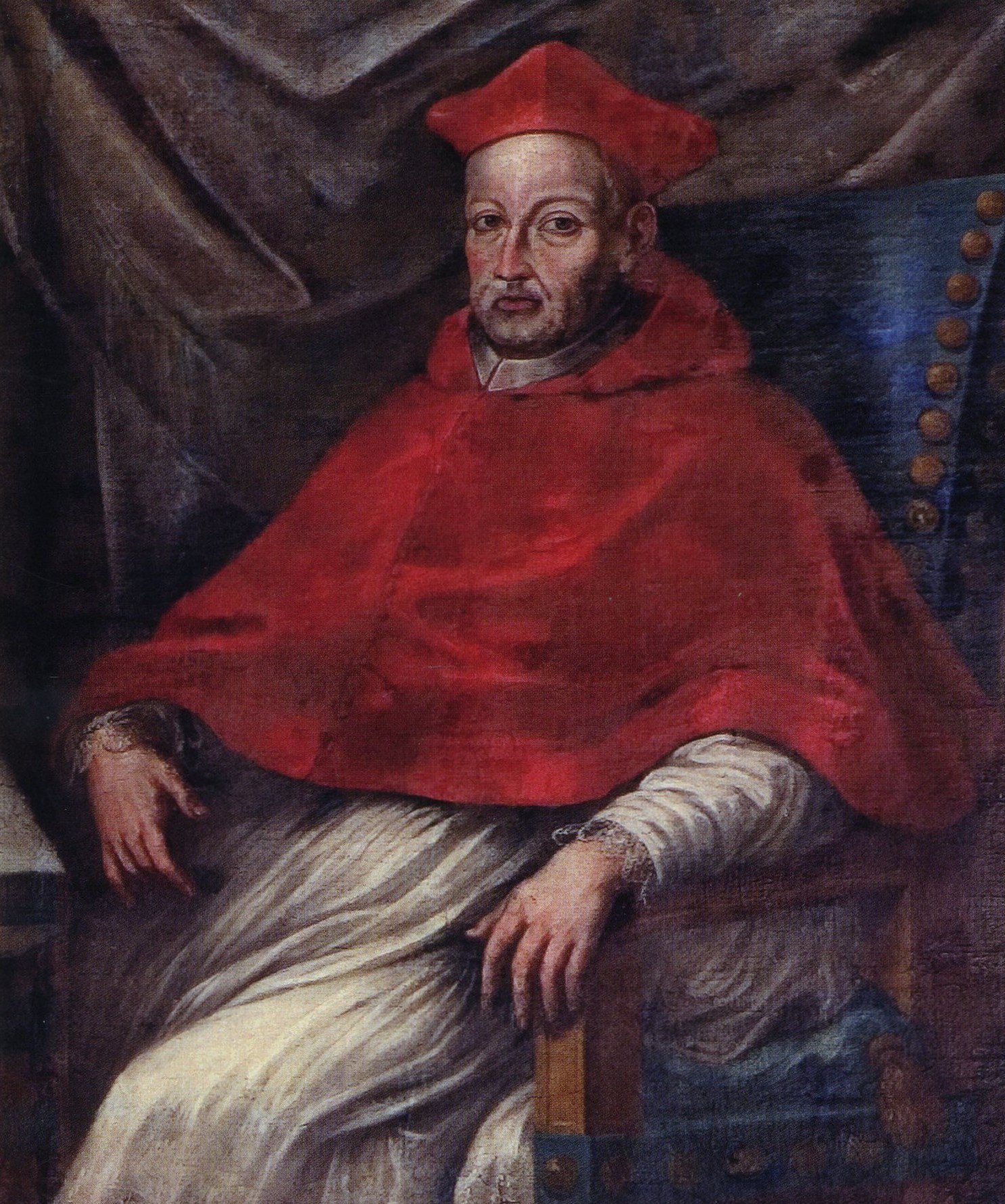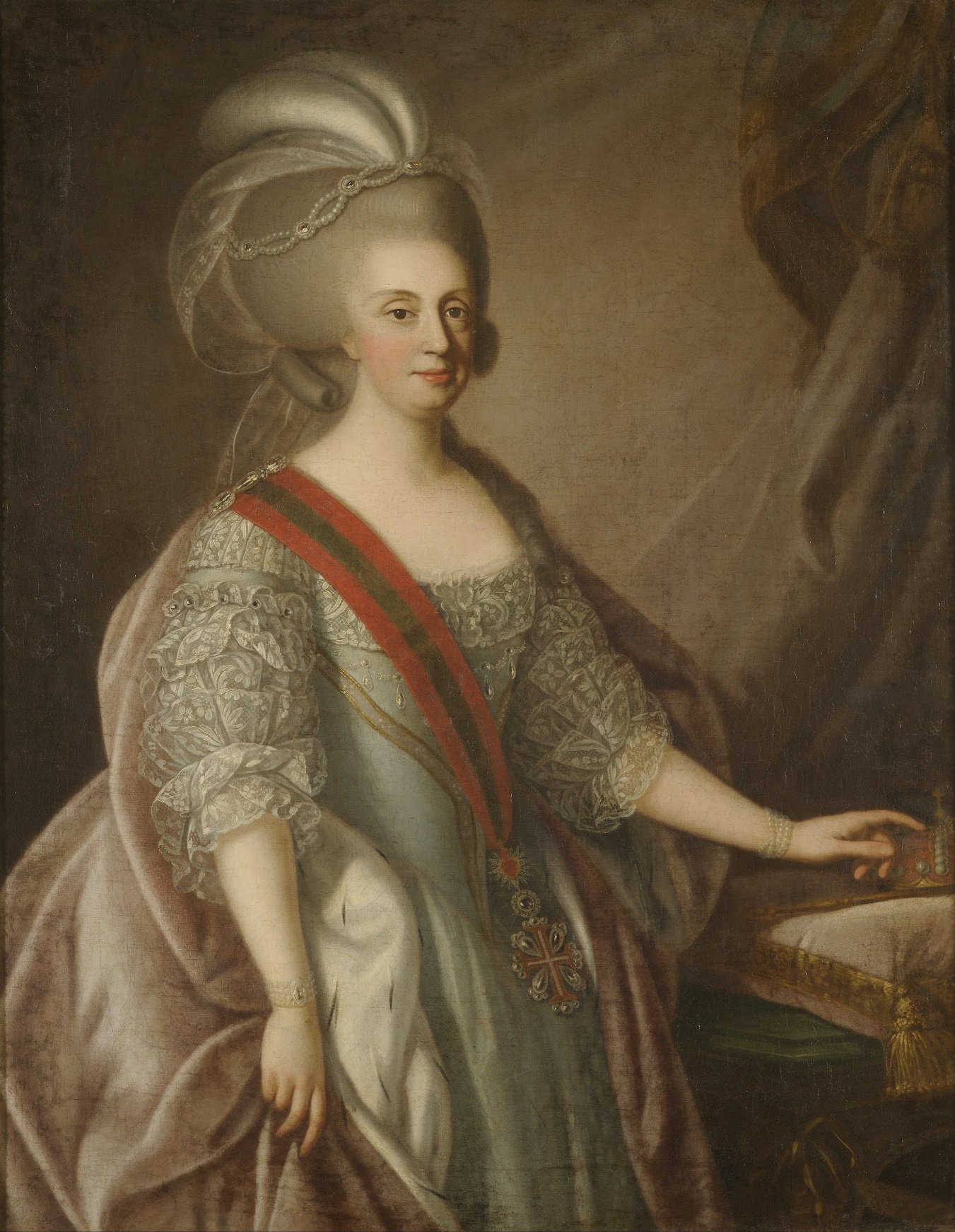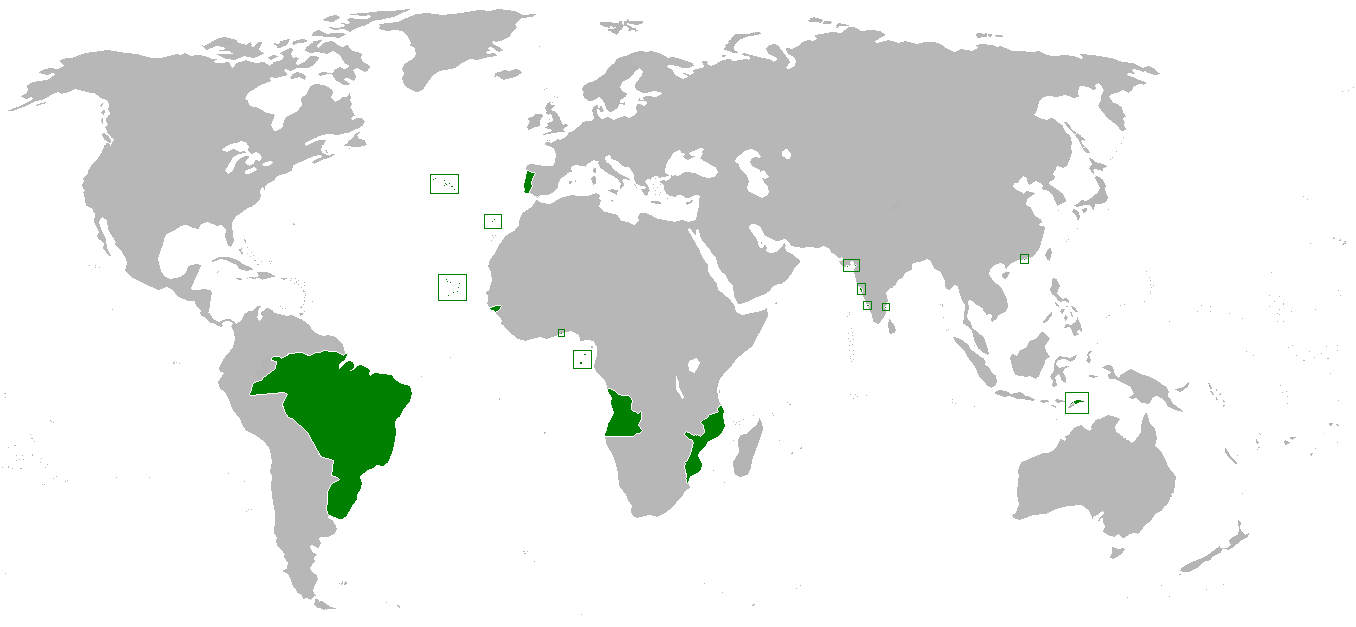|
United Kingdom Of Portugal, Brazil And The Algarves
The United Kingdom of Portugal, Brazil and the Algarves was a pluricontinental monarchy formed by the elevation of the Portuguese colony named State of Brazil to the status of a kingdom and by the simultaneous union of that Kingdom of Brazil with the Kingdom of Portugal and the Kingdom of the Algarves, constituting a single state consisting of three kingdoms. The United Kingdom of Portugal, Brazil and the Algarves was formed in 1815, following the transfer of the Portuguese court to Brazil during the Napoleonic invasions of Portugal, and it continued to exist for about one year after the court's return to Europe, being '' de facto'' dissolved in 1822, when Brazil proclaimed its independence. The dissolution of the United Kingdom was accepted by Portugal and formalized ''de jure'' in 1825, when Portugal recognized the independent Empire of Brazil. During its period of existence the United Kingdom of Portugal, Brazil and the Algarves did not correspond to the whole of the ... [...More Info...] [...Related Items...] OR: [Wikipedia] [Google] [Baidu] |
Hymno Patriótico
The Hino Patriótico, fully Hino Patriótico da Nação Portuguesa, was considered Portugal's first national anthem. Marcos Portugal, who had remained living in Portugal, had, in 1808, initially named the piece as 'the Prince's Hymn' (''D. João VI Hymn''). With this dedication, it was offered to the prince regent D. John and first performed for him in Brazil in 1809. The anthem was inspired by the cantata "La Speranza o sia l'Augurio Felice". The lyrics changed several times, altered by contemporary events, until settling into a more or less permanent form in 1821. It was a particularly popular tune with the Portuguese troops of Wellington's Peninsular Army, where it was known by the words from the chorus ''Vencer ou morrer'' ("Win or die"). Wellington's Advocate General, Seymour Larpent, noted in his diary on 9 June 1813, "The Portuguese are in the highest order, the men really look at least equal to ours, better than some … the infantry and the Caçadores in particular. ... [...More Info...] [...Related Items...] OR: [Wikipedia] [Google] [Baidu] |
John VI Of Portugal
'' Dom'' John VI (; 13 May 1767 – 10 March 1826), known as "the Clement" (), was King of the United Kingdom of Portugal, Brazil and the Algarves from 1816 to 1825, and after the recognition of Brazil's independence, titular Emperor of Brazil and King of Portugal until his death in 1826. John VI was born in Lisbon during the reign of his maternal grandfather, King Dom Joseph I of Portugal. He was the second son of the Princess of Brazil and Infante Peter of Portugal, who later became Queen Dona Maria I and King Dom Peter III. In 1785, John married Carlota Joaquina of Spain, with whom he had nine children. He became heir to the throne when his older brother, Prince José, died of smallpox in 1788. Before his accession to the throne, John bore the titles Duke of Braganza, Duke of Beja, and Prince of Brazil. From 1799, he served as prince regent due to his mother's mental illness. In 1816, he succeeded his mother as monarch of the Portuguese Empire, with no real ... [...More Info...] [...Related Items...] OR: [Wikipedia] [Google] [Baidu] |
Empire Of Brazil
The Empire of Brazil was a 19th-century state that broadly comprised the territories which form modern Brazil and Uruguay until the latter achieved independence in 1828. The empire's government was a Representative democracy, representative Parliamentary system, parliamentary constitutional monarchy under the rule of Emperors Pedro I of Brazil, Pedro I and his son Pedro II of Brazil, Pedro II. A Colonial Brazil, colony of the Kingdom of Portugal, Brazil became the seat of the Portuguese Empire in 1808, when the Portuguese Prince regent, later King Dom João VI of Portugal, John VI, fled from Napoleon's Invasion of Portugal (1807), invasion of Portugal and Transfer of the Portuguese Court to Brazil, established himself and his government in the Brazilian city of Rio de Janeiro. John VI later returned to Portugal, leaving his eldest son and heir-apparent, Pedro, to rule the Kingdom of Brazil as regent. On 7 September 1822, Pedro declared the independence of Brazil and, after waging ... [...More Info...] [...Related Items...] OR: [Wikipedia] [Google] [Baidu] |
De Jure
In law and government, ''de jure'' (; ; ) describes practices that are officially recognized by laws or other formal norms, regardless of whether the practice exists in reality. The phrase is often used in contrast with '' de facto'' ('from fact'), which describes situations that exist in reality, even if not formally recognized. Definition ''De jure'' is a Latin expression composed of the words ''de'',("from, of") and ''jure'',("law", adjectival form of '' jus''). Thus, it is descriptive of a structural argument or position derived "from law". Usage Jurisprudence and ''de jure'' law In U.S. law, particularly after '' Brown v. Board of Education'' (1954), the difference between ''de facto'' segregation (that existed because of voluntary associations and neighborhoods) and ''de jure'' segregation (that existed because of local laws) became important distinctions for court-mandated remedial purposes. Government and culture Between 1805 and 1914, the ruling dynasty of Egypt ... [...More Info...] [...Related Items...] OR: [Wikipedia] [Google] [Baidu] |
Invasion Of Portugal (1807)
French and Spanish forces invaded Portugal from 19–30 November 1807 during the Napoleonic Wars, sparking the Peninsular War. The Franco-Spanish invasion force was led by General Jean-Andoche Junot, while the Portuguese were under the nominal command of Prince Regent John. French and Spanish troops entered Portugal and swiftly occupied it in the face of little resistance due to the poor state of the Portuguese military. Prior to the invasion, Napoleon had issued an ultimatum to the Portuguese government, which reluctantly acceded to most of his demands. Nevertheless, Napoleon ordered Junot to invade Portugal together with three Spanish Army divisions. Paralyzed by fear and indecision, the Portuguese authorities offered no resistance. Junot's troops occupied Lisbon on 30 November 1807, only to find that João and many of the leading families had escaped to Brazil aboard an Anglo-Portuguese fleet. The French quickly occupied the entire country and appropriated or disband ... [...More Info...] [...Related Items...] OR: [Wikipedia] [Google] [Baidu] |
Transfer Of The Portuguese Court To Brazil
The Portuguese royal court transferred from Lisbon to the Portuguese colony of Brazil in a strategic retreat of Queen Maria I of Portugal, prince regent John, the Braganza royal family, its court, and senior officials, totaling nearly 10,000 people, on 27 November 1807. The embarkment took place on 27 November, but due to weather conditions, the ships were only able to depart on 29 November. The Braganza royal family departed for Brazil just days before Napoleonic forces invaded Portugal on 1 December 1807. The Portuguese crown remained in Brazil from 1808 until the Liberal Revolution of 1820 led to the return of John VI of Portugal on 26 April 1821. For thirteen years, Rio de Janeiro functioned as the capital of the United Kingdom of Portugal, Brazil and the Algarves in what some historians call a metropolitan reversal (i.e., a colony exercising governance over the entirety of an empire). The period in which the court was located in Rio brought significant changes to the ... [...More Info...] [...Related Items...] OR: [Wikipedia] [Google] [Baidu] |
Kingdom Of The Algarve
The Kingdom of the Algarve (, from the Arabic language, Arabic ''Gharb al-Andalus'' , "Western al-'Andalus") was a nominal kingdom within the Kingdom of Portugal, located in the southernmost region of continental Portugal. From 1471 onwards it came to encompass Portugal's holdings in North Africa, which were referred to as "African Algarve" () or "Algarve-Beyond-the-Sea" (), in contrast with "European Algarve" (; , literally "Algarve on this side of the sea"), as such, the name of the kingdom was pluralized to Kingdom of the Algarves (), even after Portugal's last North African outpost was abandoned in 1769. Despite the name implying a degree of separateness from the rest of Portugal, it lacked any unique institutions, special privileges, or notable autonomy, and was politically very similar to other Portuguese provinces, with "King of the Algarve" being a simple honorific title, based on the Algarve's history as the last area of Portugal to be conquered from the Moors during the P ... [...More Info...] [...Related Items...] OR: [Wikipedia] [Google] [Baidu] |
Kingdom Of Portugal
The Kingdom of Portugal was a Portuguese monarchy, monarchy in the western Iberian Peninsula and the predecessor of the modern Portuguese Republic. Existing to various extents between 1139 and 1910, it was also known as the Kingdom of Portugal and the Algarves after 1415, and as the United Kingdom of Portugal, Brazil and the Algarves between 1815 and 1822. The name is also often applied to the Portuguese Empire, the realm's overseas colonies. The nucleus of the Portuguese state was the County of Portugal, established in the 9th century as part of the ''Reconquista'', by Vímara Peres, a vassal of the Kingdom of Asturias, King of Asturias. The county became part of the Kingdom of León in 1097, and the Counts of Portugal established themselves as rulers of an independent kingdom in the 12th century, following the battle of São Mamede. The kingdom was ruled by the Portuguese House of Burgundy, Afonsine Dynasty until the 1383–85 Crisis, after which the monarchy passed to the Hous ... [...More Info...] [...Related Items...] OR: [Wikipedia] [Google] [Baidu] |
Kingdom Of Brazil
The Kingdom of Brazil () was a constituent kingdom of the United Kingdom of Portugal, Brazil, and the Algarves. Creation The legal entity of the Kingdom of Brazil was created by a law issued by John VI of Portugal, Prince Regent John of Portugal, Prince of Brazil, Duke of Braganza, in name of his mother, Queen Maria I of Portugal, on 16 December 1815, which elevated the State of Brazil to the rank of a Kingdom within the United Kingdom of Portugal, Brazil, and the Algarves. By a decree issued on 22 April 1821 ahead of his departure from Brazil to Portugal, King John VI appointed his firstborn son and heir, Pedro I of Brazil, Prince Pedro of Braganza, the Prince Royal of the United Kingdom, as Prince Regent of the Kingdom of Brazil, with delegated powers to discharge the "general government and entire administration of the Kingdom of Brazil" as the King's placeholder, thus granting the Kingdom of Brazil a devolved administration within the United Kingdom. Dissolution On 7 Sep ... [...More Info...] [...Related Items...] OR: [Wikipedia] [Google] [Baidu] |
Realm
A realm is a community or territory over which a sovereign rules. The term is commonly used to describe a monarchical or dynastic state. A realm may also be a subdivision within an empire, if it has its own monarch, e.g. the German Empire. Etymology The Old French word , modern French , was the word first adopted in English; the fixed modern spelling does not appear until the beginning of the 17th century. The word supposedly derives from medieval Latin , from , of or belonging to a . The word ''rex'' itself is derived from the Latin verb , which means . Thus the literal meaning of the word ''realm'' is , traditionally a monarch (emperor, king, grand duke, prince, etc.). Usage "Realm" is particularly used for those states whose name includes the word ''kingdom'' (for example, the United Kingdom), as elegant variation, to avoid clumsy repetition of the word in a sentence (for example, "The King's realm, the United Kingdom..."). It is also useful to describe those countries who ... [...More Info...] [...Related Items...] OR: [Wikipedia] [Google] [Baidu] |
State Of Brazil
The State of Brazil () was one of the states of the Portuguese Empire, in the Americas during the period of Colonial Brazil. History In 1621, the Governorate General of Brazil was split into two states, the State of Brazil and the State of Maranhão. The state was created on June 13, 1621 by Philip II of Portugal. This action divided Portuguese America into two administrative units, with the capital of the State of Brazil located in São Salvador and the capital of the State of Maranhão located in São Luís. The State of Brazil became a Viceroyalty in January 1763, when the capital of the State of Brazil was transferred from São Salvador to Rio de Janeiro. Composition The State of Brazil originally included 12 of the original 15 captaincies, all except Ceará (which became subordinate to Pernambuco later) and Maranhão, two parts, which included the subcaptaincy of Para west of the Tordesillas Line at that time (north to south): * Captaincy of Rio Grande de ... [...More Info...] [...Related Items...] OR: [Wikipedia] [Google] [Baidu] |




